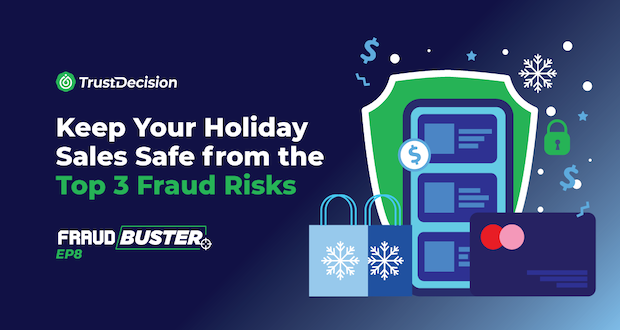E-commerce enablement tools have grown increasingly complex, integrating advanced technologies to offer personalized shopping experiences, efficient inventory management, and robust security features. This complexity underscores the importance for merchants to invest in these tools seriously. They're not just about establishing online presence; they're crucial for understanding consumer behavior, optimizing operations, and protecting against fraud. Adopting these tools can significantly enhance customer satisfaction, operational efficiency, and ultimately profitability in a highly competitive digital marketplace.
Essential Components of E-commerce Enablement
In the world of e-commerce enablement, choosing the right e-commerce platform is crucial for success. It's essential to find a platform that offers a seamless user experience, robust features, scalability to accommodate growth, and top-notch security and integration capabilities.
Choosing the right e-commerce platform
Selecting the proper e-commerce platform is a crucial task that requires a business to consider both current and prospective needs. However, understanding what these needs are can often be quite challenging. Here, we offer some key factors that every business should consider when making this crucial decision:
1. Scalability: Your chosen platform must be able to grow along with your business. As your business expands over time, the platform should have the capacity to handle increased traffic, additional products, and more transactions.
2. Security: The platform should have robust security features that can protect sensitive data and transaction details. In today's digital age, this aspect is non-negotiable and is, fortunately, a standard feature for the best e-commerce platforms.
3. Integration & Migration Ease: The platform should easily integrate with other tools and services your business uses regularly, such as email marketing software or CRM. Additionally, in the event you need to change platforms, the ease of migration must also be considered.
4. Customer Support: When you run into issues or need help, it's vital that the platform provides adequate customer service support. This includes not just reactive problem-solving but also proactive guidance on how to maximize the platform's features and benefits.
5. Total Cost of Ownership: Consider all costs associated with the platform, including setup fees, maintenance costs, and transaction fees. While a platform might seem affordable initially, hidden or overlooked costs can quickly add up.
Customer experience of the e-commerce platform
Prioritizing user experience is crucial to the success of e-commerce businesses. A seamless e-commerce platform excels not just in its integration capabilities with other systems and robust security measures, but significantly, in its intuitive navigation, rapid loading times, and uncomplicated checkout processes.
Furthermore, personalization is key to fostering enhanced user engagement. Offering high-resolution product images and detailed descriptions can significantly elevate the overall shopping experience. Mobile optimization has also become an indispensable necessity, as an increasing number of consumers are migrating to shopping on their devices.
Moreover, ensuring the availability of customer support through multiple channels can greatly enhance customer satisfaction and loyalty. All these collective features not only create a rewarding shopping experience but also encourage repeat visits and conversions, underlining the importance of a well-optimized e-commerce platform.
Payment Processing Solutions for E-commerce Enablement
For e-commerce enablement companies, payment processing solutions serve as a critical lifeline. These solutions are not merely tools for facilitating secure transactions but also reflect an understanding of evolving customer preferences.
It's essential to accommodate diverse customer preferences by integrating multiple payment methods. The choice of these methods should be informed by common trends in the local market. For instance, in markets like Indonesia, e-wallet payments are more popular than credit cards.
Ensuring High-Level Security and Compliance in Transactions
Payment processing providers must ensure the highest level of security by deploying measures such as SSL encryption. Compliance with standards such as PCI DSS is vital to safeguard sensitive customer data. Also, providing an effortless checkout experience is of paramount importance to reduce cart abandonment rates.
Compatibility with E-commerce platforms and Payment Solution Providers
Businesses should validate the compatibility between their chosen e-commerce platform and payment solution provider. This will ensure a seamless operational flow and optimal customer experience.
Acceptance of Cryptocurrency as a Progressive Move
Accepting cryptocurrency payments illustrates a forward-thinking approach that caters to a growing yet niche demographic. Such a move is advantageous due to lower transaction fees, enhanced privacy measures, and access to a global market. However, potential challenges include volatility, regulatory uncertainties, and security concerns that still persist. Therefore, merchants should closely evaluate how cryptocurrency aligns with their customer base, operational capabilities, and local market regulations before making an informed decision.
Inventory and Order Management Systems
Efficient inventory and order management systems are the cornerstone of successful e-commerce businesses. These systems do more than just streamline processes - they provide real-time tracking of stock levels, automate order processing, prevent stockouts or overstocking, increase customer satisfaction through accurate order fulfillment, and offer invaluable insights into sales trends and inventory turnover. By seamlessly integrating with other e-commerce platforms and supply chain components, they facilitate a smooth workflow from order receipt to delivery, optimizing operational efficiency and enabling informed decision-making for inventory replenishment and product offerings. This comprehensive approach to inventory and order management is key to enhancing your e-commerce capabilities.
Logistics Management & Customer Satisfaction
Many merchants excel in creating an appealing online presence, maintaining inventory, and managing orders efficiently. However, the journey falters at the last mile due to selecting unsuitable delivery partners or lacking a robust customer support and feedback mechanism. This final step is crucial; delays, damaged goods, or unresponsive customer service can tarnish the customer experience, overshadowing previous positives. An inadequate return or refund process further exacerbates dissatisfaction.
Balancing a customer-friendly return/refund process with preventing policy abuse is crucial for maintaining high customer satisfaction. A lenient policy enhances trust and loyalty, but merchants must safeguard against exploitation. Integrating a fraud management tool that analyses the full customer lifecycle becomes key, allowing businesses to assess the risk level of each user or transaction. This strategic approach ensures a fair and secure policy that supports genuine customers while deterring fraudulent activities, ultimately fostering a trustworthy and reliable shopping environment.
Continuing Trends and Fraud Prevention
Omnichannel Marketing Automation for Customer Shopping Experience
AI-driven marketing automation heralds a new era in e-commerce, enabling business to offer unified and personalized customer experiences across various channels and platforms (website, email, social media, mobile apps, in-store, etc.)
Techniques like machine learning algorithms predict customer needs. It also allows real-time adjustments in marketing strategies and customized content, including offering promotion and showing visual at a specific timing at a hyper-personolized level according to user behaviour and profile.
The Use of AI/ML for Fraud Management
Apart from improving customer shopping experience, employing AI/ML into all the customer touch points will help to have a cohesive end-to-end fraud prevention strategy and detect promotion abuse cases.
Essentially, the tactics to analyze behavioral patterns and transaction data to for hyper-personalized marketing strategy can also be used to identify anomalies indicating fraudulent activity.
Integrating fraud prevention with marketing automation tools offer a holistic view of customer interactions, enabling business to tailor experiences while maintaining high security standards.
Dominance of Mobile Commerce and Importance of Device Fingerprint
The surge in smartphone usage has significantly influenced the shift towards mobile commerce, an evolving landscape filled with both opportunities and challenges for e-commerce businesses. According to Statista, the global smartphone user base is projected to grow by 1.5 billion users between 2024 and 2029, marking a 30.6% increase. This period, marking the fifteenth year of consecutive growth, is expected to peak at a staggering 6.4 billion smartphone users by 2029.
As transactions continue to move towards mobile platforms, advanced authentication methods like device fingerprinting have become essential for effectively mitigating risks linked to mobile transactions. This non-intrusive technology captures unique device characteristics to identify fraudulent activities and assess each device's risk level.
Given that 10% of transactions identified as fraudulent were found to have malicious tools installed on the devices, the necessity for robust risk mitigation strategies becomes more evident. E-commerce enablement companies must leverage technology to devise effective strategies that help combat fraudulent activities like bot registration and policy abuse.
Solution provider like TrustDecision, that have accumulated a global network of 7 billion devices, provide more than 150 parameters that assist in identifying cheating tools such as app cloning, virtual positioning, virtual machines, automation tools, and VPNs. Such comprehensive strategies ensure a safe and secure environment for mobile commerce transactions.
Bot/Mass Registration and Advanced Authentication Methods
Behavioral biometrics analyzes patterns in user interactions (such as typing or browsing rhythm) to identify human behaviour, differentiating real users from bots.
Device fingerprinting identifies unique device ID and collects relevant insights to evaluate the risk level (such as battery level, tampered device, IP address and location matching). Individual parameter and a combination of few help to recognize and block suspicious login.
MFA adds layers of security by requiring users to verify their identity through multiple credentials (such as re-login, CAPTCHA, eKYC, etc.)
Future Perspectives in E-commerce Enablement: Areas to Watch, Its Opportunities and Challenges
Increasing Influence of AI and ML
The increasing influence of AI and ML in e-commerce enablement is revolutionizing the industry. These technologies will continue to provide personalized shopping experiences, optimize inventory management, automate customer service, and detect fraud in real-time.
Its Challenges: Rising AI-generated Fraud
With the increasing use of AI in e-commerce enablement, there is a growing concern about rising AI-generated fraud. As fraudsters become more sophisticated in exploiting loopholes in AI systems, e-commerce enablers need to continuously update their fraud prevention strategies to stay ahead of malicious actors.
Augmented and Virtual Reality (AR/VR) Shopping Experiences
By creating enriched virtual shopping environments, e-commerce enablers can offer customers a more immersive and interactive shopping experience. This not only enhances customer engagement but also increases the likelihood of making a purchase. With the use of augmented reality and virtual reality technologies, customers can virtually try on clothing and accessories, visualize how furniture would look in their homes, or even test out makeup products before buying. This level of interactivity provides a sense of confidence in the purchasing decision and reduces the likelihood of returns, ultimately benefiting both customers and businesses.
Its Challenges: Ensuring Transactional Security and Data Protection
As AR/VR shopping experiences become more prevalent, ensuring transactional security and data protection becomes paramount for e-commerce enablement companies. Merchants must implement appropriate security measures to safeguard sensitive customer information from potential breaches.
Voice Commerce Integration
The integration of voice commerce presents opportunities for convenience, accessibility, and personalized shopping experiences for consumers. By allowing users to simply speak their orders, it eliminates the need to type or click through multiple screens, making the purchasing process seamless and efficient. Additionally, the ability to tailor the shopping experience based on individual preferences ensures that customers feel valued and understood, leading to increased satisfaction and loyalty.
Its Challenges: Security and Privacy Concerns
With the increasing reliance on e-commerce platforms, security and privacy concerns have become a major challenge for businesses. Customers are becoming more aware of the risks associated with sharing their personal and financial information online, leading to a growing demand for stringent data protection measures. As cyber threats continue to evolve, businesses must stay vigilant in implementing robust security protocols to safeguard sensitive customer data from potential breaches. Additionally, the need for compliance with data privacy regulations such as GDPR and CCPA adds another layer of complexity to e-commerce operations, requiring businesses to carefully navigate the legal landscape while ensuring seamless customer experiences.
TrustDecision: Empowering E-commerce Advancements
In 2023, the retail and e-commerce industries faced a multitude of evolving fraud trends, driven by fraudsters' adept use of new technologies and opportunities, with expectations for these trends to continue, if not intensify, into 2024. Notably, the use of AI to create convincing supporting documents for synthetic identity fraud has become a significant concern, with losses from such fraud projected to near $5 billion by the end of 2024. This represents a sophisticated level of attack where fraudsters synthesize identities to bypass traditional verification checks.
Other prevalent fraud trends included an increase in check fraud, despite declining check use, and a surge in "friendly fraud," where customers make false claims to initiate chargebacks. Remarkably, about 75% of retailers reported a 19% increase in friendly fraud incidents in 2023 . Moreover, deposit and checking account fraud saw an uptick, even in brick-and-mortar settings, challenging the notion that online channels are the primary fraud targets. (Source: Merchant Fraud Journal)
The Key Components from TrustDecision’s Solution
Multi-Layered Defense with AI and ML
TrustDecision incorporates advanced AI and ML algorithms to detect and prevent fraudulent activities at every stage of the user journey. From registration to order placement and payment processing, TrustDecision's solution offers real-time decision intelligence, ensuring secure user onboarding and transactions for businesses. By utilizing predictive analytics and machine learning models, TrustDecision stays ahead of evolving fraud tactics, providing a robust defense against malicious activities in e-commerce.
Cross-Border Transactions and Intelligence Sharing
Cross-border transactions present distinct challenges, including compliance with diverse regulations, increased fraud risk, currency and payment complexities, and logistical hurdles. Effective management involves utilizing advanced fraud prevention technologies, secure payment processing that complies with international standards, understanding and adhering to the regulatory landscape of different countries, offering multiple currency and payment options, and ensuring reliable shipping methods. Strategic planning and technology deployment can mitigate these risks, allowing businesses to safely expand globally while enhancing customer trust and satisfaction.
Collaboration and Intelligence Sharing
TrustDecision serves a wide-range of industries globally. This allow us to have the intelligence about fraud trends and threat vectors can enhance collective security measures. By working together, businesses can stay ahead of fraudsters and better protect the e-commerce ecosystem.
In conclusion, e-commerce enablement stands at the core of business growth and success. Adopting the appropriate e-commerce technologies and software allows business to enhance their operations, expand their reach and significantly boost sales.
TrustDecision plays a role in this digital landscape by providing intelligent fraud prevention solution to ensure businesses can safely explore new markets and opportunities. The importance of fraud prevention has never been more critical, with the rise of online transaction bringing about increased complexity and volume of potential fraud. TrustDecision focuses on protecting the businesses while making sure to maintain good customer experiences with compliance in check.














